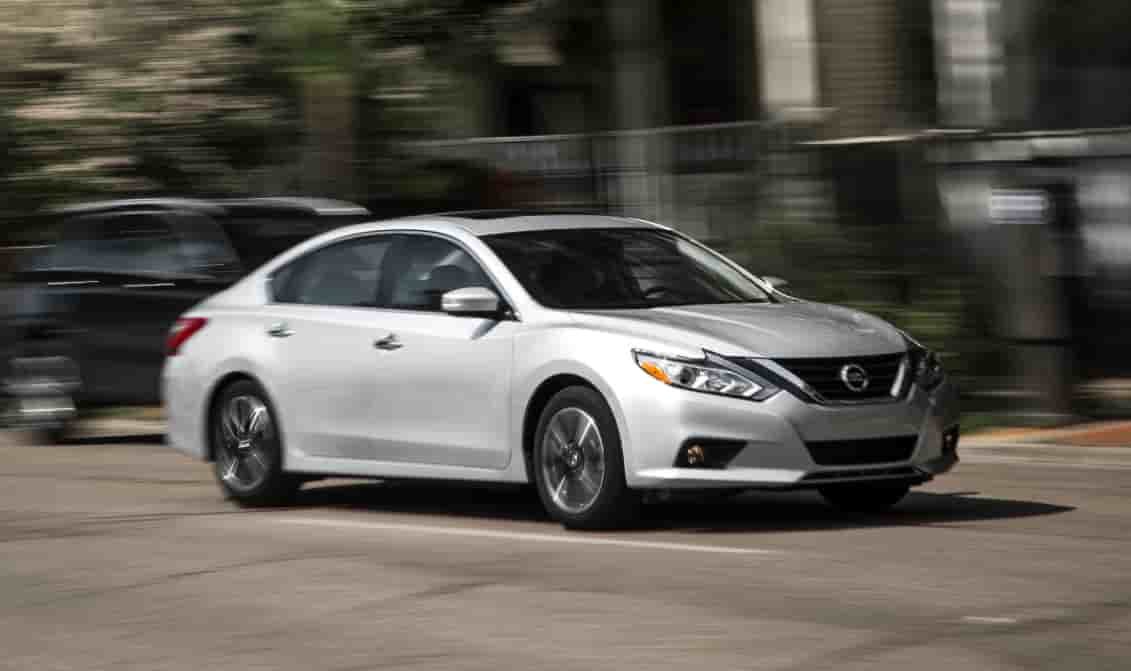Are you sure you are using the right gas for your Nissan Altima? Many drivers assume that all gasoline is the same, but the truth is that fuel type plays a crucial role in how your car performs, how efficiently it runs, and how long the engine lasts. The Nissan Altima has earned its reputation as one of the most reliable and fuel efficient sedans on the market, but choosing the wrong gas can silently reduce that performance over time.
Understanding the correct fuel for your specific Altima model is not just about saving money at the pump. It is also about protecting your engine’s internal components and maintaining the car’s original power. Whether you drive the 2.5 liter naturally aspirated version or the more powerful 2.0 liter turbocharged model, each has specific fuel requirements recommended by Nissan engineers.
In this guide, you will discover exactly what type of gas the Nissan Altima uses, why it matters, and how the right choice can improve both your driving experience and your car’s long term health.
Understanding the Nissan Altima Gas Type
The Nissan Altima is designed to run primarily on unleaded regular gasoline with an octane rating of 87. This applies to most of its trims including the S, SV, SL, and SR equipped with the 2.5 liter four cylinder engine. Regular fuel provides the right balance between cost efficiency and combustion performance for this powertrain. It allows the engine to operate smoothly while maintaining Nissan’s intended balance of power and economy.
However, the story changes when it comes to the 2.0 liter Variable Compression Turbo engine. This version benefits from higher octane fuel because of the engine’s ability to adjust compression ratios. Nissan recommends premium gasoline with an octane rating of 91 or higher to maximize performance and prevent knocking under heavy acceleration. Using regular gas in the turbo model will not immediately damage the engine, but it can lead to reduced power output and efficiency.
Every Altima comes with a clear fuel label near the fuel cap and a detailed recommendation in the owner’s manual. Following these guidelines ensures that your car performs as designed. The correct gas type not only supports smooth ignition and acceleration but also helps maintain optimal emissions and engine health over years of driving.
Regular vs Premium Gas: Which One Should You Choose
For most Nissan Altima drivers, regular unleaded gasoline is the right choice. The 2.5 liter naturally aspirated engine was designed to operate perfectly with 87 octane fuel. It delivers consistent performance, smooth acceleration, and reliable efficiency without the need for premium fuel. Many owners worry that using regular gas might harm the engine, but Nissan engineers specifically tune this engine for that fuel grade.
Premium gasoline, on the other hand, contains a higher octane level that resists pre ignition, which is useful in engines with higher compression or turbocharging. The 2.0 liter turbocharged Altima can adjust its compression ratio depending on driving conditions. This makes it more sensitive to octane quality, especially when extra power is needed. Using premium gas allows the turbo engine to deliver its maximum horsepower and torque while preventing engine knocking or pinging.
If you put regular gas in the turbo Altima, the car’s sensors will automatically adjust ignition timing to protect the engine, but this adjustment reduces performance. You may notice slower acceleration or slightly lower fuel economy. For drivers who mostly commute in normal traffic, regular fuel is acceptable occasionally, but for those who enjoy spirited driving or long highway trips, premium is worth the investment.
Choosing the correct gas type comes down to balancing performance with cost. Regular fuel keeps your 2.5 liter Altima running economically, while premium unlocks the full potential of the turbo model. Understanding this distinction helps you get the best value out of every gallon you use.
How Gas Type Affects Engine Performance and Longevity
The type of gas you choose influences how efficiently your Nissan Altima burns fuel and how long the engine lasts. When you use gasoline with the correct octane rating, the combustion process happens smoothly inside the cylinders. The air and fuel mixture ignites at the right moment, allowing your car to produce steady power without internal stress. Regular gas works perfectly for the 2.5 liter Altima because its compression ratio matches that fuel’s detonation point.
If the fuel’s octane is too low for your engine, premature combustion can occur, known as knocking or pinging. Over time, this can lead to uneven wear on pistons, valves, and spark plugs. Turbocharged engines are especially sensitive to this problem because of their higher internal pressures. That is why the 2.0 liter turbo Altima benefits from premium gas, which burns more slowly and resists knock under load.
Fuel quality also affects engine cleanliness. Low quality gasoline may leave carbon buildup on injectors and intake valves, reducing fuel flow and efficiency. Using gas from reputable stations helps prevent this issue. Adding a fuel system cleaner occasionally can further protect your engine from deposits.
Consistently using the recommended gas type not only maintains performance but also helps your Altima achieve its rated fuel economy. It ensures smoother idle, quieter operation, and better long term reliability. In the long run, this simple habit can save you money on repairs and keep your driving experience as refined as the day you bought the car.
Nissan Altima Gas Mileage and Fuel Economy by Trim
Fuel economy has always been one of the strongest selling points of the Nissan Altima. Depending on the trim level and engine type, the Altima can deliver excellent mileage for both city and highway driving. Understanding these numbers helps you choose the model that best fits your daily routine and driving habits.
The standard 2.5 liter four cylinder engine offers impressive efficiency without sacrificing comfort or performance. When paired with front wheel drive, it achieves an estimated 27 miles per gallon in the city and 39 miles per gallon on the highway, giving a combined average of about 32 MPG. This makes it one of the most economical midsize sedans in its segment. Drivers who often face traffic or short commutes benefit most from this setup because the engine runs efficiently at low speeds.
For those who prefer more power, the 2.0 liter Variable Compression Turbo engine offers stronger acceleration and sportier handling. However, that performance comes with a slight trade off in fuel economy. It delivers around 25 miles per gallon in the city and 34 on the highway for a combined average of 29 MPG. The turbo engine’s ability to change its compression ratio helps balance power and efficiency better than most rivals.
Trim levels such as S, SV, SL, SR, and Platinum use the same basic engine configuration but may differ slightly in MPG due to tire size, weight, and optional all wheel drive. Even with these variations, every Altima remains competitive in its class. Choosing the right trim means balancing performance needs, driving conditions, and long term fuel savings.
Tips to Improve Your Nissan Altima’s Fuel Efficiency
Even if your Nissan Altima already offers excellent fuel economy, a few simple habits can make it perform even better. Improving gas mileage is not only about saving money but also about keeping your engine healthy and reducing emissions.
Regular maintenance is the first step. Change the engine oil on schedule, replace the air filter when it becomes dirty, and check the spark plugs to ensure proper combustion. Clean components help the engine breathe easily and burn fuel more efficiently. Keeping tires inflated to the recommended pressure also improves mileage because underinflated tires create more rolling resistance.
Driving habits make a big difference as well. Avoid sudden acceleration or hard braking whenever possible. Smooth and steady driving allows the engine to stay within its most efficient range. On highways, using cruise control helps maintain consistent speed and reduce unnecessary fuel use.
Fuel quality matters too. Always buy gasoline from trusted stations that meet Top Tier standards. High quality fuel keeps injectors clean and prevents deposits that can reduce performance. Occasionally using a fuel system cleaner can also help remove buildup in the lines and valves.
Finally, reduce unnecessary weight in your car and avoid idling for long periods. Every extra kilogram and every wasted minute of idling increases fuel consumption. By combining these habits, your Altima will run more efficiently, last longer, and deliver the kind of performance Nissan engineers designed it for.
FAQs About Nissan Altima Gas Type
Can I use premium gas in a regular Nissan Altima?
Yes, you can use premium gas in a regular 2.5 liter Altima, but it will not provide any significant performance benefit. The engine is optimized for 87 octane fuel, and higher octane will not make it faster or more efficient. The only effect you might notice is a slightly smoother idle, but the difference is minimal compared to the extra cost of premium fuel.
What happens if I accidentally use the wrong gas type?
If you put regular gas in a 2.0 liter turbo Altima once or twice, it will not cause damage. The engine’s sensors automatically adjust timing to prevent knocking. However, using lower octane fuel consistently may reduce performance and cause mild hesitation during acceleration. For long term use, it is always best to follow Nissan’s recommendations listed on the fuel cap and in the owner’s manual.
Does using premium gas improve MPG?
Not necessarily. In most non turbo Altima models, premium fuel will not increase fuel economy. The 2.0 liter turbo engine may experience a small improvement because it can fully use its higher compression settings, but the gain is often less than two percent. The key to better MPG remains proper maintenance and driving habits rather than fuel grade alone.
Is ethanol blended gas safe for Nissan Altima?
Yes, Nissan allows the use of gasoline that contains up to ten percent ethanol, labeled as E10. It is safe and compatible with the Altima’s fuel system. However, higher ethanol blends like E85 are not recommended unless your vehicle is specifically designed for flex fuel use. Always check the label at the pump before filling up.
Conclusion
Choosing the right gas for your Nissan Altima is one of the simplest yet most effective ways to protect your engine and maintain strong performance. Most Altima models, especially those with the 2.5 liter engine, are designed to run on regular unleaded gasoline with an octane rating of 87. It provides the ideal mix of affordability, reliability, and fuel efficiency. For the 2.0 liter turbocharged Altima, premium gasoline with an octane rating of 91 or higher helps unlock the engine’s full power while preventing knocking and ensuring smoother acceleration.
Using the correct gas type is not only about following a technical rule but also about respecting the engineering behind your car. When you use the fuel your engine truly needs, every component works in harmony, allowing the vehicle to deliver its best performance year after year.
Before your next fill up, take a moment to check your owner’s manual or the label inside your fuel door. The right choice at the pump can keep your Altima running like new, save money on maintenance, and give you the confidence that every mile you drive is backed by Nissan’s trusted engineering.

